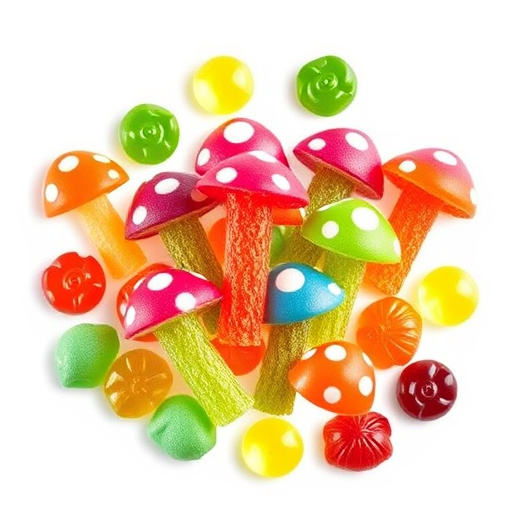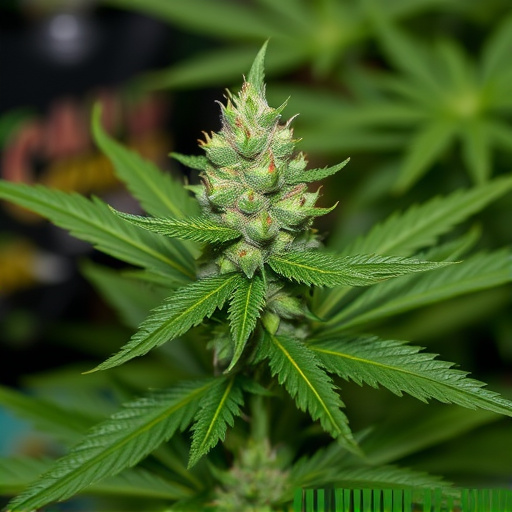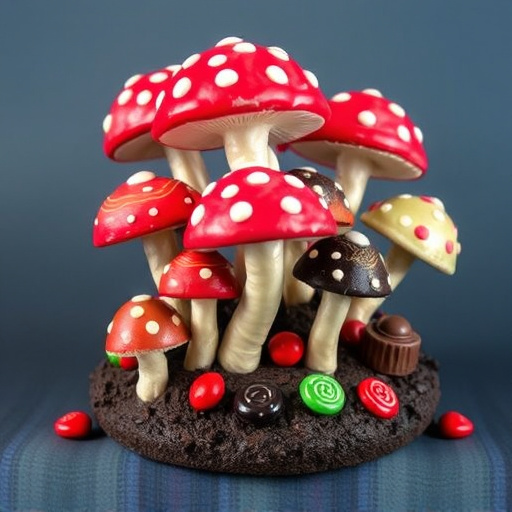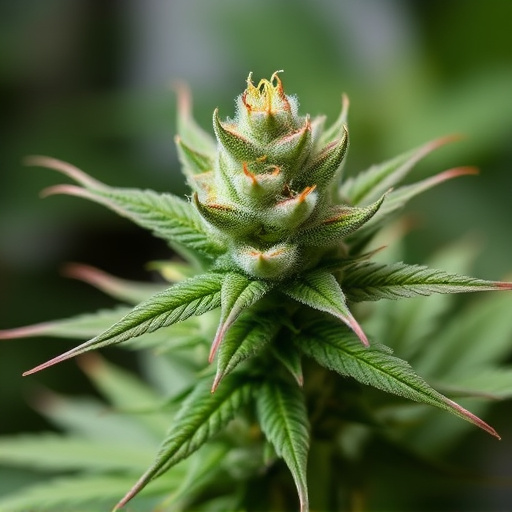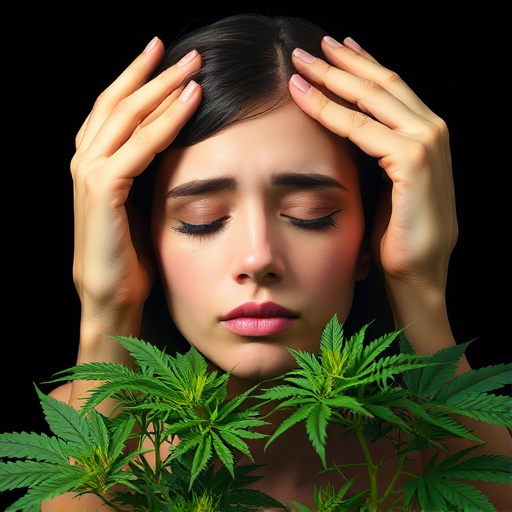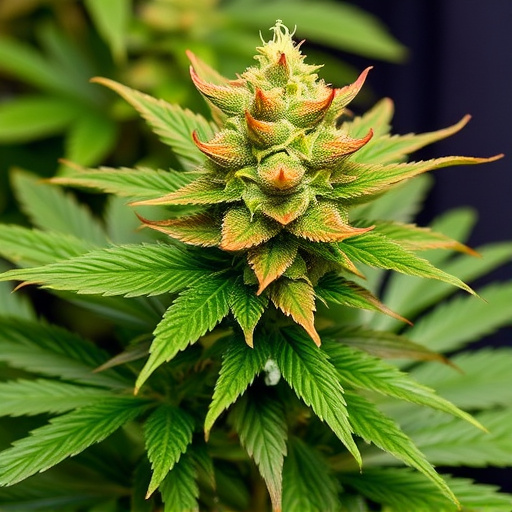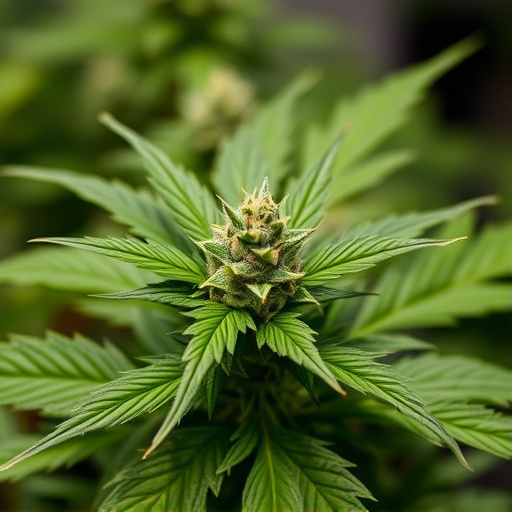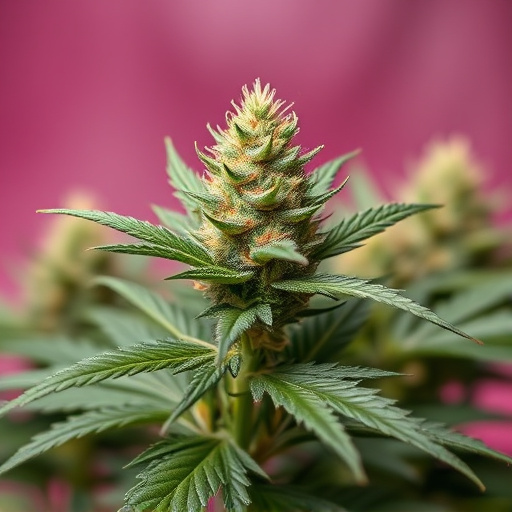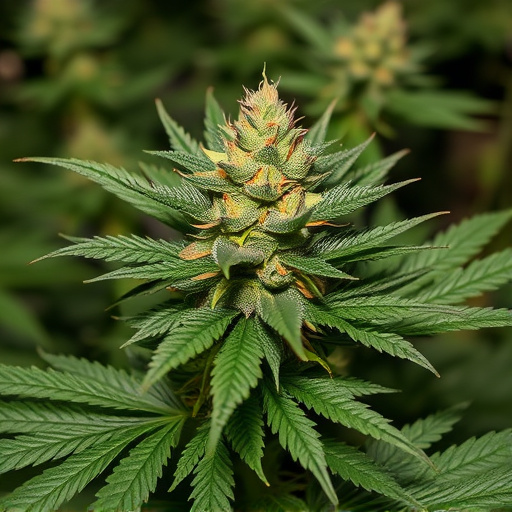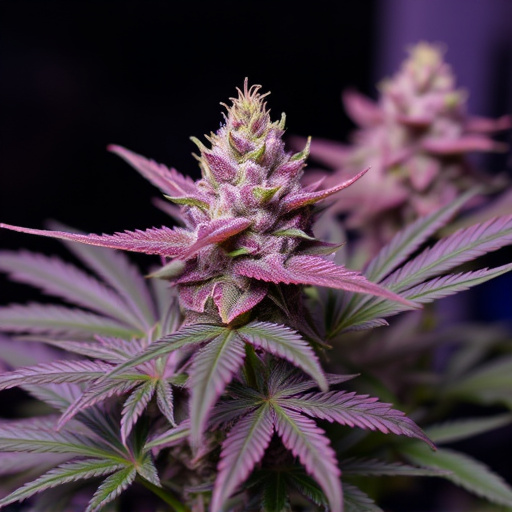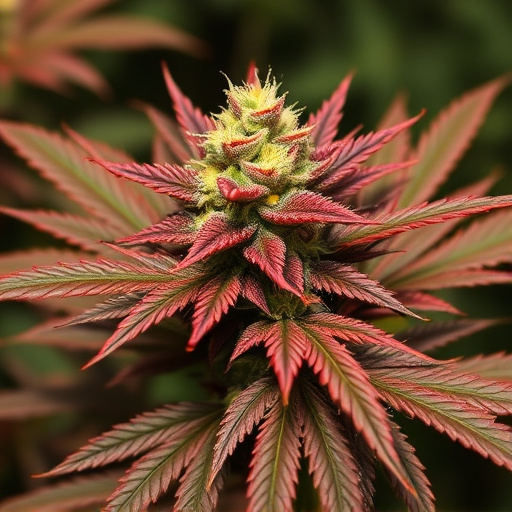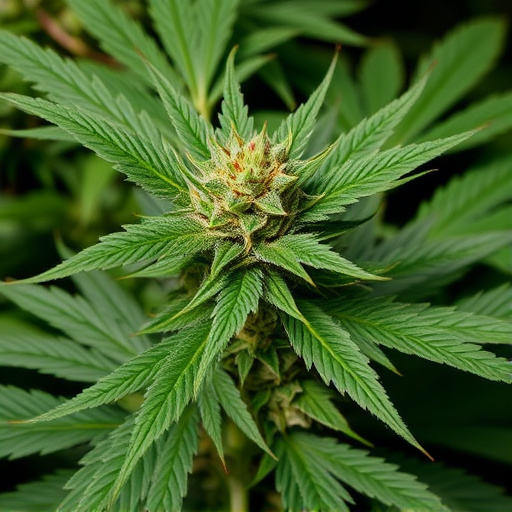Medical marijuana strains' unique compounds, such as THC and CBD, interact with the endocannabinoid system, affecting key neurotransmitters like dopamine and serotonin. This interaction offers therapeutic potential for conditions like depression, anxiety, and chronic pain by regulating emotional states and perceptions of pleasure. While THC stimulates dopamine release, potentially treating mood disorders, CBD influences serotonin receptors, providing anti-anxiety effects. The specific chemical profiles and terpene content in medical marijuana strains enable tailored treatments for diverse mental health needs.
“Unraveling the intricate dance between cannabis, dopamine, and serotonin reveals a complex web of brain chemistry with profound implications. This article explores how medical marijuana interacts with these crucial neurotransmitters, specifically focusing on medical marajuana strains and their potential therapeutic benefits. By understanding the role of dopamine and serotonin in reward and mood regulation, we can better comprehend the impact of cannabis on mental health and explore its application in treatment.”
- Understanding Dopamine and Serotonin: The Neurotransmitters of Reward and Mood
- Cannabis and its Impact on Brain Chemistry: A Complex Relationship
- Medical Marijuana Strains: Targeting Dopamine and Serotonin for Therapeutic Benefits
Understanding Dopamine and Serotonin: The Neurotransmitters of Reward and Mood
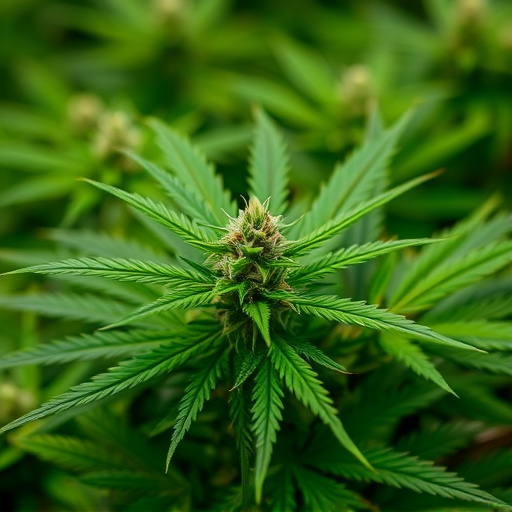
Dopamine and serotonin are two key neurotransmitters that play a significant role in our brain’s reward system and mood regulation. Often referred to as the “feel-good” chemicals, they are deeply involved in processes such as motivation, pleasure, and emotional well-being. Understanding these neurotransmitters is essential when exploring how medical marijuana strains interact with our bodies, especially given their potential therapeutic benefits for various conditions.
Dopamine is largely associated with reward and motivation, triggering a sense of pleasure and reinforcement of rewarding behaviors. Serotonin, on the other hand, influences mood, appetite, and sleep. Medical marajuana strains contain compounds like THC (tetrahydrocannabinol) and CBD (cannabidiol) that interact with our endocannabinoid system, which has been shown to modulate dopamine and serotonin levels in the brain. This interaction can lead to changes in mood, perception of pleasure, and overall emotional state, offering insights into potential therapeutic applications for conditions like depression, anxiety, and chronic pain.
Cannabis and its Impact on Brain Chemistry: A Complex Relationship
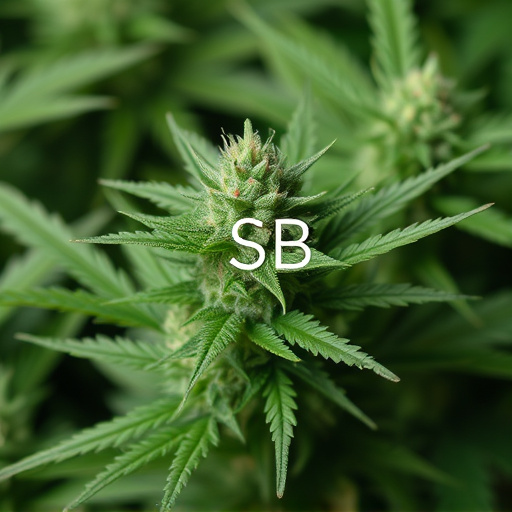
Cannabis, particularly medical marijuana strains, has a complex relationship with brain chemistry. The plant contains compounds like THC and CBD that interact with the body’s endocannabinoid system (ECS), which regulates various functions including mood, memory, and pleasure. This interaction can significantly impact neurotransmitters such as dopamine and serotonin, which play crucial roles in emotion, motivation, and overall well-being.
THC, for instance, binds to cannabinoid receptors in the brain, mimicking the body’s natural endocannabinoids. While this can lead to feelings of euphoria and relaxation, it also stimulates dopamine release, potentially reinforcing cannabis use. On the other hand, CBD has been shown to have anxiolytic effects by interacting with serotonin receptors, offering a more balanced approach to managing mental health without the same level of dopamine stimulation as THC. This interplay highlights the nuanced ways in which cannabis can affect brain chemistry, depending on the specific compounds and their interactions.
Medical Marijuana Strains: Targeting Dopamine and Serotonin for Therapeutic Benefits
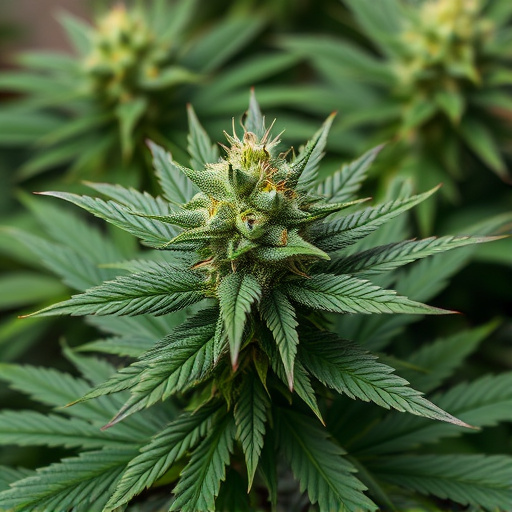
Medical marijuana strains have gained significant attention for their potential therapeutic benefits, largely due to their ability to interact with the brain’s dopamine and serotonin systems. These neurochemicals play crucial roles in mood, motivation, pleasure, and sleep—disruptions of which are associated with various mental health conditions. Certain cannabis strains, rich in compounds like tetrahydrocannabinol (THC) and cannabidiol (CBD), have been found to modulate dopamine and serotonin activity, offering hope for novel treatments.
For instance, THC has shown promise in stimulating dopamine release, which can provide relief for individuals suffering from conditions like depression or anxiety. Meanwhile, CBD, often celebrated for its anti-anxiety effects, indirectly influences serotonin receptors, potentially helping to stabilize mood. The specific chemical profile of medical marijuana strains—including their terpene content—further contributes to their therapeutic potential, allowing tailored treatment options for different mental health profiles.
Cannabis’s complex interaction with brain chemicals like dopamine and serotonin offers both challenges and therapeutic potential, particularly through specific medical marijuana strains. Understanding these effects is crucial for navigating the growing acceptance of cannabis for various medical conditions. Further research into targeted cannabinoid profiles within medical marijuana strains could lead to revolutionary treatments, enhancing our ability to manage mood disorders and reward-related symptoms effectively.

